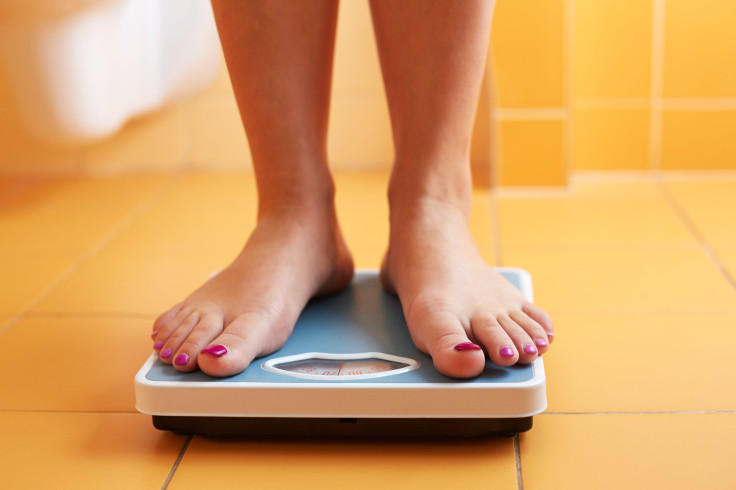Weight Loss Trick: Using Bathroom Scale For Daily Weigh-Ins May Help You Slim Fast

After chowing down on endless appetizers, entrees, and desserts, and eating the Christmas dinner leftovers, it’s no surprise losing weight ranks high on our New Year’s resolution list. Diet pills, juice cleanses, and gym memberships will take precedence in the New Year among weight loss hopefuls, but there is a 10-second weight loss trick you can do at home to shed the pounds. According to a recent study published in the journal PLOS ONE the more you weigh yourself, the more weight you will lose.
Most weight loss programs do not encourage daily weigh-ins because they can cause dieters to hate their body for no reason. Jillian Michaels, a health and wellness expert, believes weighing yourself daily will not help you stay on track and can actually become a daily torture ritual.
“I recommend that people weigh themselves once a week, at the same time every week. Weighing yourself every day can have a negative impact on you,” she wrote on her website.
Since regular self-weighing has been associated with successful weight loss and maintenance, Elina Helander and co-authors from Tampere University of Technology in Finland sought to examine the link between time differences of weight measurements and the corresponding weight changes through self-weight data. A total of 2,838 weight measurements (up to a years' worth of weigh-ins) from 40 overweight individuals (with a body mass index of 25 and over) who indicated that weight loss was a personal goal or concern were analyzed in the study. These individuals were attending a health-promoting program.
The findings revealed weight loss was related to how often individuals weighed themselves. The average time that participants could go between weighing without gaining weight was 5.8 days, or about a weekly weigh-in. Participants who went more than a week without weighing themselves were more likely to gain weight. However, this observational study cannot prove causation because these findings may be attributed to the fact that less serious dieters weigh themselves less or that dieters who stop losing weight stop weighing themselves.
"The more often you weigh yourself, the more weight you lose," Helander said in the press release. Self-weighing frequency and body satisfaction were not found to correlate in a weight loss trial, but increased self-weighing frequency was associated with greater weight loss. Frequent self-weighing is not recommended for all individuals. For some, it can be associated with negative outcomes such as an increase in body dissatisfaction or decreased self-esteem during slow progress or falling short of weight loss goals. Overall, weighing yourself at least once a week may help you lose weight while weighing yourself every day may help you stay on track.
A similar 2005 study published in the journal Annals of Behavioral Medicine found daily weighing may be better for weight loss and weight control than weekly or less frequent weighing. The participants who weighed themselves every day lost about 12 pounds over the course of two years, while those who weighed themselves every week lost only 6 pounds. Those who never weighed on their own gained about 4 pounds.
Weight naturally fluctuates throughout the week, and most people weigh the least on Wednesday. This concept is known as the weight loss cycle. Typically, everyone loses weight on weekdays and gains weight on weekends. However, what separates the slim from the heavy is how much they lose during the weekdays.
"The bottom line is: If you want to lose weight, it's best to weigh yourself every day. But if you weigh yourself only once a week, do it on Wednesday because that will give you the most accurate reading,” said Dr. Brian Wansink, director of the Cornell Food and Brand Lab and author of Slim by Design: Mind Eating Solutions for Everyday Life.
Sources:
Felander EE, Korhonen IKJ, Vuorinen AL, Wansink B. Are Breaks in Daily Self-Weighing Associated with Weight Gain? PLOS ONE. 2014.
Noyle RG, French SA, Linde JA et al. Self-weighing in weight gain prevention and weight loss trials. Ann Behav Med. 2005.
Ermes M, Mattila E, Orsama AL et al. Weight rhythms: weight increases during weekends and decreases during weekdays. Obes Facts. 2014.



























